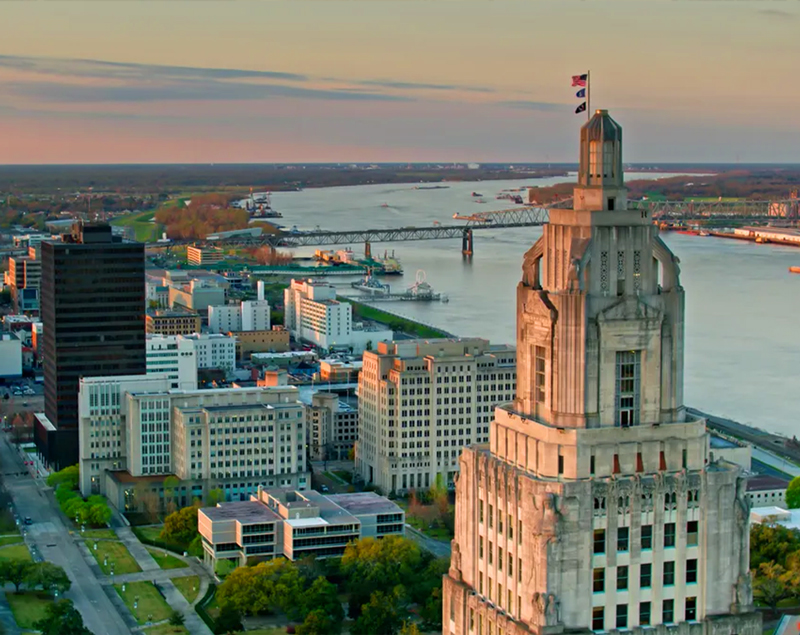Chest Injury

The first step you should take after suffering a chest injury is to take stock of the situation. These injuries often impact major organs like the heart and lungs and might seriously affect a person’s ability to return to work as a result. Given that chest injury treatment costs can also be quite high, many victims are placed in dire financial circumstances.
With that in mind, once you understand the gravity of your situation, it’s best to consult a personal injury lawyer to learn more about whether you’re eligible to recover compensation.
What Are Common Types of Chest Injuries?
Perhaps the most important thing to understand regarding chest injuries is that they can take many forms that range in severity from minor to fatal.
That’s because the chest is a large area of the body that includes multiple vital organs and bones, such as:
- The heart
- Lungs
- Esophagus
- Trachea
- Thymus
- Ribcage
- Upper spinal column
The chest is also composed of an intricate system of nerves, muscles, tendons, ligaments, cartilage, and other soft tissues. An injury to the chest can involve one or many of these body parts.
On that note, some of the most common types of chest injuries include the following:
- Rib fractures
- Collapsed lungs
- Cardiac contusions (bruised heart muscles)
Chest injuries that impact the heart or lungs are most likely to be life-threatening. But in general, any type of chest injury is likely to have a long-term impact on your physical health and capabilities.
How Do Chest Injuries Occur?
Chest injuries are often the result of trauma to the chest area.
As such, some of the most common situations that cause chest injuries include the following:
- Car accidents
- Motorcycle accidents
- Truck accidents
- Slip and fall accidents
- Workplace accidents
- Construction accidents
- The use of defective products
- Sports accidents
In these incidents, a chest injury might be sustained as a direct blow to the chest, being crushed or caught between objects, or the impact of a fall. Gunshot wounds and physical assault are other possible causes of chest injuries.
Determining what directly caused your chest injury is important, as it will help you identify your options for recovering compensation and the type of lawyer you need to hire.
What Are the Signs and Symptoms of a Chest Injury?
The signs and symptoms of a chest injury can range significantly. In some cases, they might be immediately apparent. A car accident, for instance, might result in a person’s chest being instantly crushed. In other cases, such as those involving internal injuries, it may not be so immediately evident that a serious injury has occurred.
Therefore, it’s important to see a doctor immediately following any accident involving trauma to the chest. A healthcare provider can run tests and diagnose serious injuries that might only have minor symptoms at first.
Generally speaking, though, some of the most common warning signs of a chest injury include the following:
- Obvious physical harm
- Bruising or discoloration
- Difficulty breathing
- Heart pain
- Elevated heart rate
- Swelling
- Coughing up blood
- Fever
- Reduced range of motion in the torso, neck, or arms
- Drowsiness or confusion
Any time someone shows signs of a chest injury, they should seek emergency medical care. Some serious or life-threatening conditions, like a bruised heart or lung damage, might not be immediately apparent, especially considering the shock and adrenaline felt in the aftermath of an accident make it harder to recognize something isn’t right.
The Chest Injury Diagnosis and Treatment Process
Chest injury treatment most often begins with attempts to stabilize heart and lung function. Once the patient is stabilized, the medical team will perform a series of comprehensive tests to identify the nature of the victim’s injury and the corresponding medical treatment needed. Severe damage to the heart, lungs, or bones, for instance, might require immediate surgery.
Certain types of chest injuries could require specific medical procedures. For example, a collapsed lung, known as a pneumothorax, might need a breathing tube to be inserted and blood to be drained from the injury site to help reinflate the lung.
Aftercare recommendations similarly depend on the type of injury. Damage to the ribs, sternum, or spine might result in the need for physical therapy. A heart injury will likely require follow-up treatment and monitoring by a cardiologist.
What Are the Potential Long-Term Outcomes After a Chest Injury?
Serious injuries that impact the vital organs are even more likely to have a long-term negative impact. Damage to the heart or lungs can lead to lifelong issues. A person might need to take care not to overdo physical activity at the risk of doing further damage.
Serious injuries like these can also lead to lasting symptoms like shortness of breath, difficulty breathing, and issues with circulation or heart function. There’s also a chance that returning to work might not be possible, or it may be necessary to seek different, less physically intense employment.
Even non-life-threatening chest injuries can have a lasting impact on a person’s health and quality of life. Injuries to the ribcage or sternum, for example, might heal relatively quickly, but they often result in lasting symptoms like chronic pain and loss of strength.
Getting Help With Chest Injury Compensation
Between medical expenses and lost wages, a chest injury can take a serious toll on a family’s finances. Therefore, after experiencing a chest injury, it’s a good idea to consult a personal injury attorney about your options for obtaining compensation.
Personal injury compensation can help offset the many costs associated with a chest injury, such as:
- Past and future medical bills
- Physical therapy costs
- Medical device costs
- Past and future lost wages and benefits
Chest injury compensation is usually offered via an insurance policy. For example, if a chest injury was the result of a motorcycle accident, a lawyer can help you obtain compensation through the auto insurance policy of the driver who caused the crash.
Contact Our Baton Rouge Chest Injury Lawyers Today For a Free Initial Consultation
You should never assume that chest injury costs are your problem to bear alone. The experienced chest injury lawyers at Palmintier Law Group regularly help clients like you recover compensation for their damages, both economic and non-economic. We are proud to have recovered billions of dollars in personal injury compensation.
Contact our law firm today to schedule a free consultation at (225) 344 3735 with an experienced chest injury lawyer in Baton Rouge, Louisiana. Our award-winning attorneys are available to discuss how we can help with your case.
